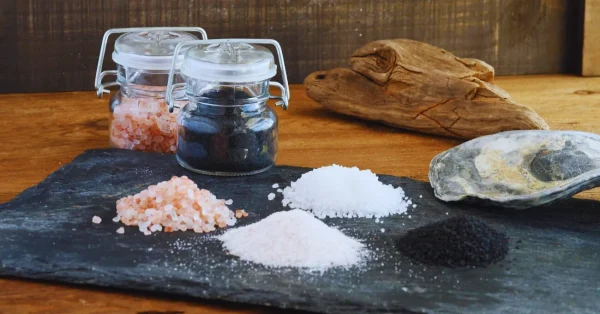Celtic sea salt has been gaining popularity in the health and wellness industry, and for good reason. This unrefined salt, harvested from the pristine coastal regions of France, offers a wealth of benefits that set it apart from other types of salt. In this comprehensive guide, we’ll explore what makes Celtic sea salt so special and how it can enhance your overall well-being.
Key Takeaways
- Celtic sea salt is a natural, unrefined salt with a unique mineral composition that offers numerous health benefits.
- It differs from table salt and Himalayan salt in terms of processing, mineral content, and flavor profile.
- Incorporating Celtic sea salt into your diet can support digestion, mineral absorption, and electrolyte balance.
What is Celtic Sea Salt?
Celtic sea salt is a type of salt that is hand-harvested from the coastal regions of France, particularly in Brittany. The salt is collected using traditional methods that have been passed down for generations. Seawater is channeled into salt ponds and allowed to evaporate naturally under the sun and wind. The resulting salt is then carefully collected and undergoes minimal processing to maintain its natural mineral content.
The Difference Between Celtic Sea Salt and Other Salts
One of the main differences between Celtic sea salt and common table salt lies in their processing methods. Table salt is heavily refined, stripped of its natural minerals, and often contains added iodine and anti-caking agents. In contrast, Celtic sea salt retains its natural mineral composition, which includes trace amounts of magnesium, potassium, and calcium.
When compared to Himalayan salt, another popular alternative, Celtic sea salt has a different mineral profile due to its unique origin. While both salts are unrefined, Celtic sea salt is typically lower in sodium and higher in moisture content, giving it a distinct texture and flavor.
Key Features of Celtic Sea Salt
Celtic sea salt is known for its coarse, moist texture and light gray color, which comes from the natural clay found in the salt ponds. This unique texture adds a delightful crunch to dishes and enhances the overall flavor profile of foods.
Celtic sea salt is available in various forms, including fine, coarse, and even flavored options. Its versatility extends beyond culinary applications, as it is also used in natural remedies and skincare products due to its mineral content and potential therapeutic properties.
Also Read: Cumin Seed Benefits For Skin: Know The Impressive Benefits!
Health Benefits of Celtic Salt
Consuming Celtic sea salt may offer numerous health benefits. The natural minerals found in Celtic salt can support improved digestion by stimulating the production of digestive enzymes. These minerals also play a crucial role in maintaining proper electrolyte balance within the body, which is essential for optimal hydration and overall cellular function.
Studies have suggested that the balanced mineral content in Celtic sea salt may have positive effects on cardiovascular health by regulating blood pressure and supporting healthy heart function. Additionally, the trace amounts of iodine naturally present in Celtic salt can contribute to maintaining a healthy thyroid function.
Potential Drawbacks of Consuming Celtic Sea Salt
While Celtic sea salt offers many benefits, it’s important to consume it in moderation. Like any type of salt, Celtic salt still contains sodium, and excessive sodium intake can lead to health concerns such as high blood pressure. It’s recommended to use Celtic salt as part of a balanced diet and to monitor your overall sodium consumption.
Some individuals may also experience allergic reactions or sensitivities to certain minerals found in Celtic salt. If you have any pre-existing health conditions or concerns, it’s always best to consult with a healthcare professional before making significant changes to your diet.
Conclusion
Celtic sea salt is a natural, unrefined alternative to regular table salt that offers a unique mineral composition and a host of potential health benefits. By incorporating Celtic salt into your daily life, you can enhance the flavor of your meals while supporting your overall well-being.
Remember, moderation is key when it comes to salt consumption. By making informed choices about the types of salt you use and being mindful of your intake, you can enjoy the benefits of Celtic sea salt as part of a balanced and healthy lifestyle.
Read More: Black Olives Benefits You Must Know!
FAQs
A: Yes, Celtic sea salt can be used as a substitute for regular table salt in most recipes. However, keep in mind that it may have a slightly different flavor profile and texture.
A: While Celtic sea salt contains less sodium than regular table salt, it is still a source of sodium. If you are on a low-sodium diet, it’s important to consult with your healthcare provider to determine the appropriate amount of Celtic salt to consume.
A: Celtic sea salt should be stored in an airtight container in a cool, dry place away from direct sunlight. This will help preserve its natural moisture content and prevent clumping.
A: Yes, Celtic sea salt is often used in natural remedies and skincare products due to its mineral content. It can be used in bath soaks, body scrubs, and even as a natural exfoliant for the skin.

